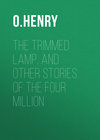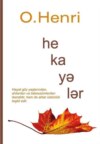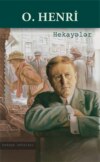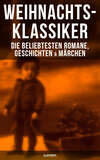Kitabı oku: «The Trimmed Lamp, and other Stories of the Four Million», sayfa 8
THE FOREIGN POLICY OF COMPANY 99
John Byrnes, hose-cart driver of Engine Company No. 99, was afflicted with what his comrades called Japanitis.
Byrnes had a war map spread permanently upon a table in the second story of the engine-house, and he could explain to you at any hour of the day or night the exact positions, conditions and intentions of both the Russian and Japanese armies. He had little clusters of pins stuck in the map which represented the opposing forces, and these he moved about from day to day in conformity with the war news in the daily papers.
Wherever the Japs won a victory John Byrnes would shift his pins, and then he would execute a war dance of delight, and the other firemen would hear him yell: "Go it, you blamed little, sawed-off, huckleberry-eyed, monkey-faced hot tamales! Eat 'em up, you little sleight-o'-hand, bow-legged bull terriers – give 'em another of them Yalu looloos, and you'll eat rice in St. Petersburg. Talk about your Russians – say, wouldn't they give you a painsky when it comes to a scrapovitch?"
Not even on the fair island of Nippon was there a more enthusiastic champion of the Mikado's men. Supporters of the Russian cause did well to keep clear of Engine-House No. 99.
Sometimes all thoughts of the Japs left John Byrnes's head. That was when the alarm of fire had sounded and he was strapped in his driver's seat on the swaying cart, guiding Erebus and Joe, the finest team in the whole department – according to the crew of 99.
Of all the codes adopted by man for regulating his actions toward his fellow-mortals, the greatest are these – the code of King Arthur's Knights of the Round Table, the Constitution of the United States and the unwritten rules of the New York Fire Department. The Round Table methods are no longer practicable since the invention of street cars and breach-of-promise suits, and our Constitution is being found more and more unconstitutional every day, so the code of our firemen must be considered in the lead, with the Golden Rule and Jeffries's new punch trying for place and show.
The Constitution says that one man is as good as another; but the Fire Department says he is better. This is a too generous theory, but the law will not allow itself to be construed otherwise. All of which comes perilously near to being a paradox, and commends itself to the attention of the S. P. C. A.
One of the transatlantic liners dumped out at Ellis Island a lump of protozoa which was expected to evolve into an American citizen. A steward kicked him down the gangway, a doctor pounced upon his eyes like a raven, seeking for trachoma or ophthalmia; he was hustled ashore and ejected into the city in the name of Liberty – perhaps, theoretically, thus inoculating against kingocracy with a drop of its own virus. This hypodermic injection of Europeanism wandered happily into the veins of the city with the broad grin of a pleased child. It was not burdened with baggage, cares or ambitions. Its body was lithely built and clothed in a sort of foreign fustian; its face was brightly vacant, with a small, flat nose, and was mostly covered by a thick, ragged, curling beard like the coat of a spaniel. In the pocket of the imported Thing were a few coins – denarii – scudi – kopecks – pfennigs – pilasters – whatever the financial nomenclature of his unknown country may have been.
Prattling to himself, always broadly grinning, pleased by the roar and movement of the barbarous city into which the steamship cut-rates had shunted him, the alien strayed away from the sea, which he hated, as far as the district covered by Engine Company No. 99. Light as a cork, he was kept bobbing along by the human tide, the crudest atom in all the silt of the stream that emptied into the reservoir of Liberty.
While crossing Third avenue he slowed his steps, enchanted by the thunder of the elevated trains above him and the soothing crash of the wheels on the cobbles. And then there was a new, delightful chord in the uproar – the musical clanging of a gong and a great shining juggernaut belching fire and smoke, that people were hurrying to see.
This beautiful thing, entrancing to the eye, dashed past, and the protoplasmic immigrant stepped into the wake of it with his broad, enraptured, uncomprehending grin. And so stepping, stepped into the path of No. 99's flying hose-cart, with John Byrnes gripping, with arms of steel, the reins over the plunging backs of Erebus and Joe.
The unwritten constitutional code of the fireman has no exceptions or amendments. It is a simple thing – as simple as the rule of three. There was the heedless unit in the right of way; there was the hose-cart and the iron pillar of the elevated railroad.
John Byrnes swung all his weight and muscle on the left rein. The team and cart swerved that way and crashed like a torpedo into the pillar. The men on the cart went flying like skittles. The driver's strap burst, the pillar rang with the shock, and John Byrnes fell on the car track with a broken shoulder twenty feet away, while Erebus – beautiful, raven-black, best-loved Erebus – lay whickering in his harness with a broken leg.
In consideration for the feelings of Engine Company No. 99 the details will be lightly touched. The company does not like to be reminded of that day. There was a great crowd, and hurry calls were sent in; and while the ambulance gong was clearing the way the men of No. 99 heard the crack of the S. P. C. A. agent's pistol, and turned their heads away, not daring to look toward Erebus again.
When the firemen got back to the engine-house they found that one of them was dragging by the collar the cause of their desolation and grief. They set it in the middle of the floor and gathered grimly about it. Through its whiskers the calamitous object chattered effervescently and waved its hands.
"Sounds like a seidlitz powder," said Mike Dowling, disgustedly, "and it makes me sicker than one. Call that a man! – that hoss was worth a steamer full of such two-legged animals. It's a immigrant – that's what it is."
"Look at the doctor's chalk mark on its coat," said Reilly, the desk man. "It's just landed. It must be a kind of a Dago or a Hun or one of them Finns, I guess. That's the kind of truck that Europe unloads onto us."
"Think of a thing like that getting in the way and laying John up in hospital and spoiling the best fire team in the city," groaned another fireman. "It ought to be taken down to the dock and drowned."
"Somebody go around and get Sloviski," suggested the engine driver, "and let's see what nation is responsible for this conglomeration of hair and head noises."
Sloviski kept a delicatessen store around the corner on Third avenue, and was reputed to be a linguist.
One of the men fetched him – a fat, cringing man, with a discursive eye and the odors of many kinds of meats upon him.
"Take a whirl at this importation with your jaw-breakers, Sloviski," requested Mike Dowling. "We can't quite figure out whether he's from the Hackensack bottoms or Hongkong-on-the-Ganges."
Sloviski addressed the stranger in several dialects that ranged in rhythm and cadence from the sounds produced by a tonsilitis gargle to the opening of a can of tomatoes with a pair of scissors. The immigrant replied in accents resembling the uncorking of a bottle of ginger ale.
"I have you his name," reported Sloviski. "You shall not pronounce it. Writing of it in paper is better." They gave him paper, and he wrote, "Demetre Svangvsk."
"Looks like short hand," said the desk man.
"He speaks some language," continued the interpreter, wiping his forehead, "of Austria and mixed with a little Turkish. And, den, he have some Magyar words and a Polish or two, and many like the Roumanian, but not without talk of one tribe in Bessarabia. I do not him quite understand."
"Would you call him a Dago or a Polocker, or what?" asked Mike, frowning at the polyglot description.
"He is a" – answered Sloviski – "he is a – I dink he come from – I dink he is a fool," he concluded, impatient at his linguistic failure, "and if you pleases I will go back at mine delicatessen."
"Whatever he is, he's a bird," said Mike Dowling; "and you want to watch him fly."
Taking by the wing the alien fowl that had fluttered into the nest of Liberty, Mike led him to the door of the engine-house and bestowed upon him a kick hearty enough to convey the entire animus of Company 99. Demetre Svangvsk hustled away down the sidewalk, turning once to show his ineradicable grin to the aggrieved firemen.
In three weeks John Byrnes was back at his post from the hospital. With great gusto he proceeded to bring his war map up to date. "My money on the Japs every time," he declared. "Why, look at them Russians – they're nothing but wolves. Wipe 'em out, I say – and the little old jiu jitsu gang are just the cherry blossoms to do the trick, and don't you forget it!"
The second day after Byrnes's reappearance came Demetre Svangvsk, the unidentified, to the engine-house, with a broader grin than ever. He managed to convey the idea that he wished to congratulate the hose-cart driver on his recovery and to apologize for having caused the accident. This he accomplished by so many extravagant gestures and explosive noises that the company was diverted for half an hour. Then they kicked him out again, and on the next day he came back grinning. How or where he lived no one knew. And then John Byrnes's nine-year-old son, Chris, who brought him convalescent delicacies from home to eat, took a fancy to Svangvsk, and they allowed him to loaf about the door of the engine-house occasionally.
One afternoon the big drab automobile of the Deputy Fire Commissioner buzzed up to the door of No. 99 and the Deputy stepped inside for an informal inspection. The men kicked Svangvsk out a little harder than usual and proudly escorted the Deputy around 99, in which everything shone like my lady's mirror.
The Deputy respected the sorrow of the company concerning the loss of Erebus, and he had come to promise it another mate for Joe that would do him credit. So they let Joe out of his stall and showed the Deputy how deserving he was of the finest mate that could be in horsedom.
While they were circling around Joe confabbing, Chris climbed into the Deputy's auto and threw the power full on. The men heard a monster puffing and a shriek from the lad, and sprang out too late. The big auto shot away, luckily taking a straight course down the street. The boy knew nothing of its machinery; he sat clutching the cushions and howling. With the power on nothing could have stopped that auto except a brick house, and there was nothing for Chris to gain by such a stoppage.
Demetre Svangvsk was just coming in again with a grin for another kick when Chris played his merry little prank. While the others sprang for the door Demetre sprang for Joe. He glided upon the horse's bare back like a snake and shouted something at him like the crack of a dozen whips. One of the firemen afterward swore that Joe answered him back in the same language. Ten seconds after the auto started the big horse was eating up the asphalt behind it like a strip of macaroni.
Some people two blocks and a half away saw the rescue. They said that the auto was nothing but a drab noise with a black speck in the middle of it for Chris, when a big bay horse with a lizard lying on its back cantered up alongside of it, and the lizard reached over and picked the black speck out of the noise.
Only fifteen minutes after Svangvsk's last kicking at the hands – or rather the feet – of Engine Company No. 99 he rode Joe back through the door with the boy safe, but acutely conscious of the licking he was going to receive.
Svangvsk slipped to the floor, leaned his head against Joe's and made a noise like a clucking hen. Joe nodded and whistled loudly through his nostrils, putting to shame the knowledge of Sloviski, of the delicatessen.
John Byrnes walked up to Svangvsk, who grinned, expecting to be kicked. Byrnes gripped the outlander so strongly by the hand that Demetre grinned anyhow, conceiving it to be a new form of punishment.
"The heathen rides like a Cossack," remarked a fireman who had seen a Wild West show – "they're the greatest riders in the world."
The word seemed to electrify Svangvsk. He grinned wider than ever.
"Yas – yas – me Cossack," he spluttered, striking his chest.
"Cossack!" repeated John Byrnes, thoughtfully, "ain't that a kind of a Russian?"
"They're one of the Russian tribes, sure," said the desk man, who read books between fire alarms.
Just then Alderman Foley, who was on his way home and did not know of the runaway, stopped at the door of the engine-house and called to Byrnes:
"Hello there, Jimmy, me boy – how's the war coming along? Japs still got the bear on the trot, have they?"
"Oh, I don't know," said John Byrnes, argumentatively, "them Japs haven't got any walkover. You wait till Kuropatkin gets a good whack at 'em and they won't be knee-high to a puddle-ducksky."
THE LOST BLEND
Since the bar has been blessed by the clergy, and cocktails open the dinners of the elect, one may speak of the saloon. Teetotalers need not listen, if they choose; there is always the slot restaurant, where a dime dropped into the cold bouillon aperture will bring forth a dry Martini.
Con Lantry worked on the sober side of the bar in Kenealy's café. You and I stood, one-legged like geese, on the other side and went into voluntary liquidation with our week's wages. Opposite danced Con, clean, temperate, clear-headed, polite, white-jacketed, punctual, trustworthy, young, responsible, and took our money.
The saloon (whether blessed or cursed) stood in one of those little "places" which are parallelograms instead of streets, and inhabited by laundries, decayed Knickerbocker families and Bohemians who have nothing to do with either.
Over the café lived Kenealy and his family. His daughter Katherine had eyes of dark Irish – but why should you be told? Be content with your Geraldine or your Eliza Ann. For Con dreamed of her; and when she called softly at the foot of the back stairs for the pitcher of beer for dinner, his heart went up and down like a milk punch in the shaker. Orderly and fit are the rules of Romance; and if you hurl the last shilling of your fortune upon the bar for whiskey, the bartender shall take it, and marry his boss's daughter, and good will grow out of it.
But not so Con. For in the presence of woman he was tongue-tied and scarlet. He who would quell with his eye the sonorous youth whom the claret punch made loquacious, or smash with lemon squeezer the obstreperous, or hurl gutterward the cantankerous without a wrinkle coming to his white lawn tie, when he stood before woman he was voiceless, incoherent, stuttering, buried beneath a hot avalanche of bashfulness and misery. What then was he before Katherine? A trembler, with no word to say for himself, a stone without blarney, the dumbest lover that ever babbled of the weather in the presence of his divinity.
There came to Kenealy's two sunburned men, Riley and McQuirk. They had conference with Kenealy; and then they took possession of a back room which they filled with bottles and siphons and jugs and druggist's measuring glasses. All the appurtenances and liquids of a saloon were there, but they dispensed no drinks. All day long the two sweltered in there pouring and mixing unknown brews and decoctions from the liquors in their store. Riley had the education, and he figured on reams of paper, reducing gallons to ounces and quarts to fluid drams. McQuirk, a morose man with a red eye, dashed each unsuccessful completed mixture into the waste pipes with curses gentle, husky and deep. They labored heavily and untiringly to achieve some mysterious solution like two alchemists striving to resolve gold from the elements.
Into this back room one evening when his watch was done sauntered Con. His professional curiosity had been stirred by these occult bartenders at whose bar none drank, and who daily drew upon Kenealy's store of liquors to follow their consuming and fruitless experiments.
Down the back stairs came Katherine with her smile like sunrise on Gweebarra Bay.
"Good evening, Mr. Lantry," says she. "And what is the news to-day, if you please?"
"It looks like r-rain," stammered the shy one, backing to the wall.
"It couldn't do better," said Katherine. "I'm thinking there's nothing the worse off for a little water." In the back room Riley and McQuirk toiled like bearded witches over their strange compounds. From fifty bottles they drew liquids carefully measured after Riley's figures, and shook the whole together in a great glass vessel. Then McQuirk would dash it out, with gloomy profanity, and they would begin again.
"Sit down," said Riley to Con, "and I'll tell you.
"Last summer me and Tim concludes that an American bar in this nation of Nicaragua would pay. There was a town on the coast where there's nothing to eat but quinine and nothing to drink but rum. The natives and foreigners lay down with chills and get up with fevers; and a good mixed drink is nature's remedy for all such tropical inconveniences.
"So we lays in a fine stock of wet goods in New York, and bar fixtures and glassware, and we sails for that Santa Palma town on a lime steamer. On the way me and Tim sees flying fish and plays seven-up with the captain and steward, and already begins to feel like the high-ball kings of the tropics of Capricorn.
"When we gets in five hours of the country that we was going to introduce to long drinks and short change the captain calls us over to the starboard binnacle and recollects a few things.
"'I forgot to tell you, boys,' says he, 'that Nicaragua slapped an import duty of 48 per cent. ad valorem on all bottled goods last month. The President took a bottle of Cincinnati hair tonic by mistake for tobasco sauce, and he's getting even. Barrelled goods is free.'
"'Sorry you didn't mention it sooner,' says we. And we bought two forty-two gallon casks from the captain, and opened every bottle we had and dumped the stuff all together in the casks. That 48 per cent. would have ruined us; so we took the chances on making that $1,200 cocktail rather than throw the stuff away.
"Well, when we landed we tapped one of the barrels. The mixture was something heartrending. It was the color of a plate of Bowery pea soup, and it tasted like one of those coffee substitutes your aunt makes you take for the heart trouble you get by picking losers. We gave a nigger four fingers of it to try it, and he lay under a cocoanut tree three days beating the sand with his heels and refused to sign a testimonial.
"But the other barrel! Say, bartender, did you ever put on a straw hat with a yellow band around it and go up in a balloon with a pretty girl with $8,000,000 in your pocket all at the same time? That's what thirty drops of it would make you feel like. With two fingers of it inside you you would bury your face in your hands and cry because there wasn't anything more worth while around for you to lick than little Jim Jeffries. Yes, sir, the stuff in that second barrel was distilled elixir of battle, money and high life. It was the color of gold and as clear as glass, and it shone after dark like the sunshine was still in it. A thousand years from now you'll get a drink like that across the bar.
"Well, we started up business with that one line of drinks, and it was enough. The piebald gentry of that country stuck to it like a hive of bees. If that barrel had lasted that country would have become the greatest on earth. When we opened up of mornings we had a line of Generals and Colonels and ex-Presidents and revolutionists a block long waiting to be served. We started in at 50 cents silver a drink. The last ten gallons went easy at $5 a gulp. It was wonderful stuff. It gave a man courage and ambition and nerve to do anything; at the same time he didn't care whether his money was tainted or fresh from the Ice Trust. When that barrel was half gone Nicaragua had repudiated the National debt, removed the duty on cigarettes and was about to declare war on the United States and England.
"'Twas by accident we discovered this king of drinks, and 'twill be by good luck if we strike it again. For ten months we've been trying. Small lots at a time, we've mixed barrels of all the harmful ingredients known to the profession of drinking. Ye could have stocked ten bars with the whiskies, brandies, cordials, bitters, gins and wines me and Tim have wasted. A glorious drink like that to be denied to the world! 'Tis a sorrow and a loss of money. The United States as a nation would welcome a drink of that sort, and pay for it."
All the while McQuirk had been carefully measuring and pouring together small quantities of various spirits, as Riley called them, from his latest pencilled prescription. The completed mixture was of a vile, mottled chocolate color. McQuirk tasted it, and hurled it, with appropriate epithets, into the waste sink.
"'Tis a strange story, even if true," said Con. "I'll be going now along to my supper."
"Take a drink," said Riley. "We've all kinds except the lost blend."
"I never drink," said Con, "anything stronger than water. I am just after meeting Miss Katherine by the stairs. She said a true word. 'There's not anything,' says she, 'but is better off for a little water.'"
When Con had left them Riley almost felled McQuirk by a blow on the back.
"Did ye hear that?" he shouted. "Two fools are we. The six dozen bottles of 'pollinaris we had on the ship – ye opened them yourself – which barrel did ye pour them in – which barrel, ye mudhead?"
"I mind," said McQuirk, slowly, "'twas in the second barrel we opened. I mind the blue piece of paper pasted on the side of it."
"We've got it now," cried Riley. "'Twas that we lacked. 'Tis the water that does the trick. Everything else we had right. Hurry, man, and get two bottles of 'pollinaris from the bar, while I figure out the proportionments with me pencil."
An hour later Con strolled down the sidewalk toward Kenealy's café. Thus faithful employees haunt, during their recreation hours, the vicinity where they labor, drawn by some mysterious attraction.
A police patrol wagon stood at the side door. Three able cops were half carrying, half hustling Riley and McQuirk up its rear steps. The eyes and faces of each bore the bruises and cuts of sanguinary and assiduous conflict. Yet they whooped with strange joy, and directed upon the police the feeble remnants of their pugnacious madness.
"Began fighting each other in the back room," explained Kenealy to Con. "And singing! That was worse. Smashed everything pretty much up. But they're good men. They'll pay for everything. Trying to invent some new kind of cocktail, they was. I'll see they come out all right in the morning."
Con sauntered into the back room to view the battlefield. As he went through the hall Katherine was just coming down the stairs.
"Good evening again, Mr. Lantry," said she. "And is there no news from the weather yet?"
"Still threatens r-rain," said Con, slipping past with red in his smooth, pale cheek.
Riley and McQuirk had indeed waged a great and friendly battle. Broken bottles and glasses were everywhere. The room was full of alcohol fumes; the floor was variegated with spirituous puddles.
On the table stood a 32-ounce glass graduated measure. In the bottom of it were two tablespoonfuls of liquid – a bright golden liquid that seemed to hold the sunshine a prisoner in its auriferous depths.
Con smelled it. He tasted it. He drank it.
As he returned through the hall Katherine was just going up the stairs.
"No news yet, Mr. Lantry?" she asked with her teasing laugh.
Con lifted her clear from the floor and held her there.
"The news is," he said, "that we're to be married."
"Put me down, sir!" she cried indignantly, "or I will – Oh, Con, where, oh, wherever did you get the nerve to say it?"










